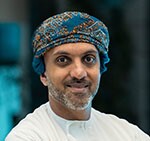As the industry progresses, the need for further collaboration is imperative on all fronts. Academic expertise, operational experience, and knowledge gathered through trial-and-error analysis must be meshed in order to achieve the optimizations that are increasingly needed with the depletions we experience in various fields globally.
The challenges that we face as an industry will require development of new technologies, whether workflows or other innovative solutions, that we never thought possible because of the need for supporting infrastructure to address them.
The challenges also require more closely coupled connections between stakeholders—the innovators in academia and industry and the doers who close the gap of technology deployment. Deployment requires taking the ideas and tried and tested opportunities to fruition, where the knowledge is shared and highlighted for our community at large.
The three papers synopsized in this feature include a discussion of augmented depletion development, a technique in which openhole wells are drilled within the fractured network of a pad; an approach to well-path generation that relies on the collection of experienced-based constraints from each discipline to generate possible alternatives to the well path; and a multidisciplinary approach used to develop a presalt field offshore Brazil.
The hope is that the technical articles in this feature can demonstrate to the reader the scope of collaboration and the effect of technical knowledge sharing that our industry currently enjoys—and requires. I hope they drive more questions and provoke further and deeper understanding of the content to the benefit of all. More importantly, I hope they highlight the complexity that is involved in addressing the industry challenges in field development and project management.
This Month’s Technical Papers
Augmented Depletion Development Technology Assessed Across US Shale Plays
Approach Uses Multidisciplinary Constraints for Automatic Well‑Path Generation
Multidisciplinary Approach Underpins Development of Marginal Presalt Reservoir

Maan H. AlAsfoor, SPE, is a petroleum engineer with Petroleum Development of Oman. He has more than 20 years of oilfield experience and has served in various companies such as Halliburton, SLB, and Occidental. Alasfoor holds a bachelor’s degree in mechanical engineering from Robert Gordon University and a master’s degree in petroleum engineering from the Colorado School of Mines. He has served in various SPE roles and is a member of the JPT Editorial Review Board.

